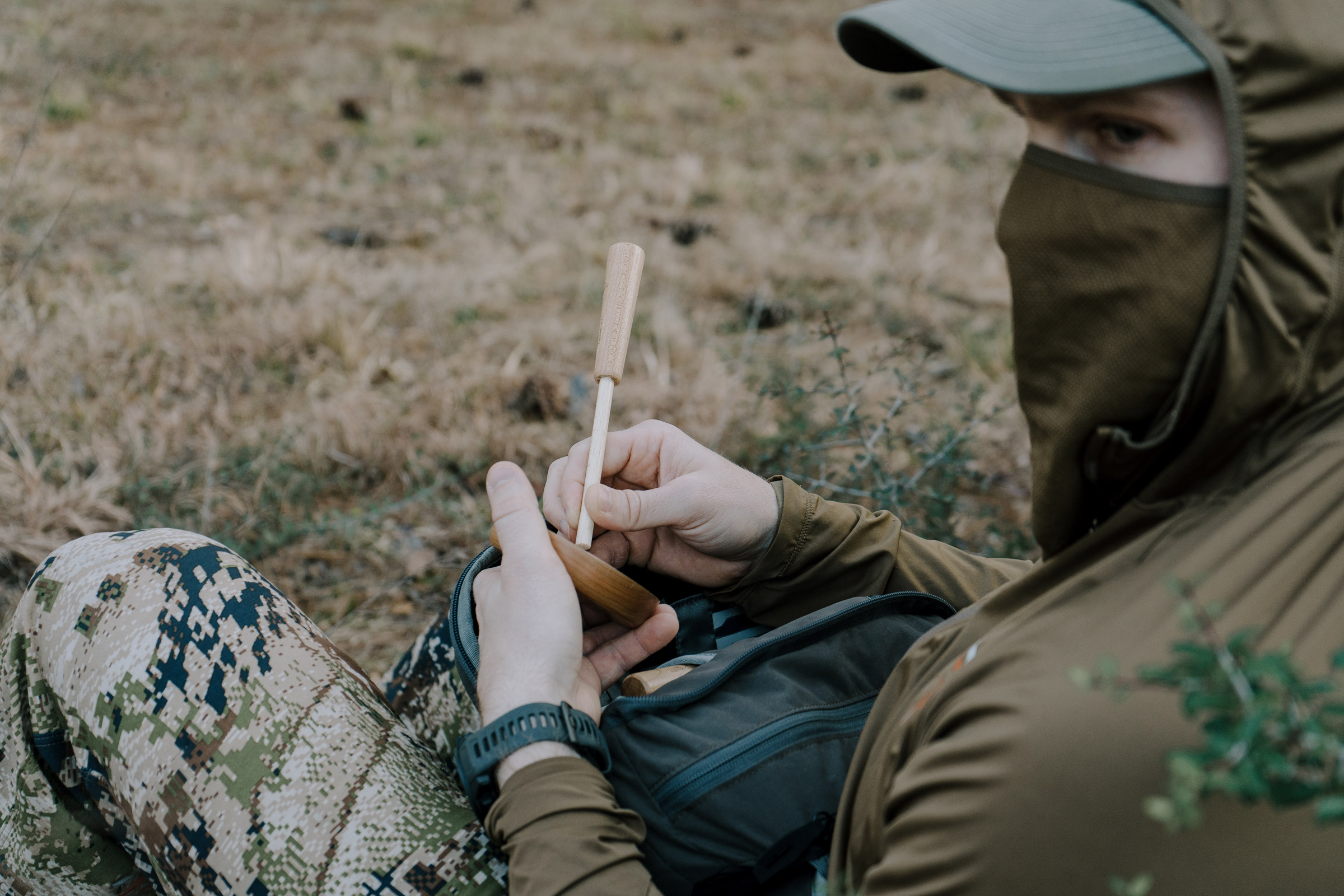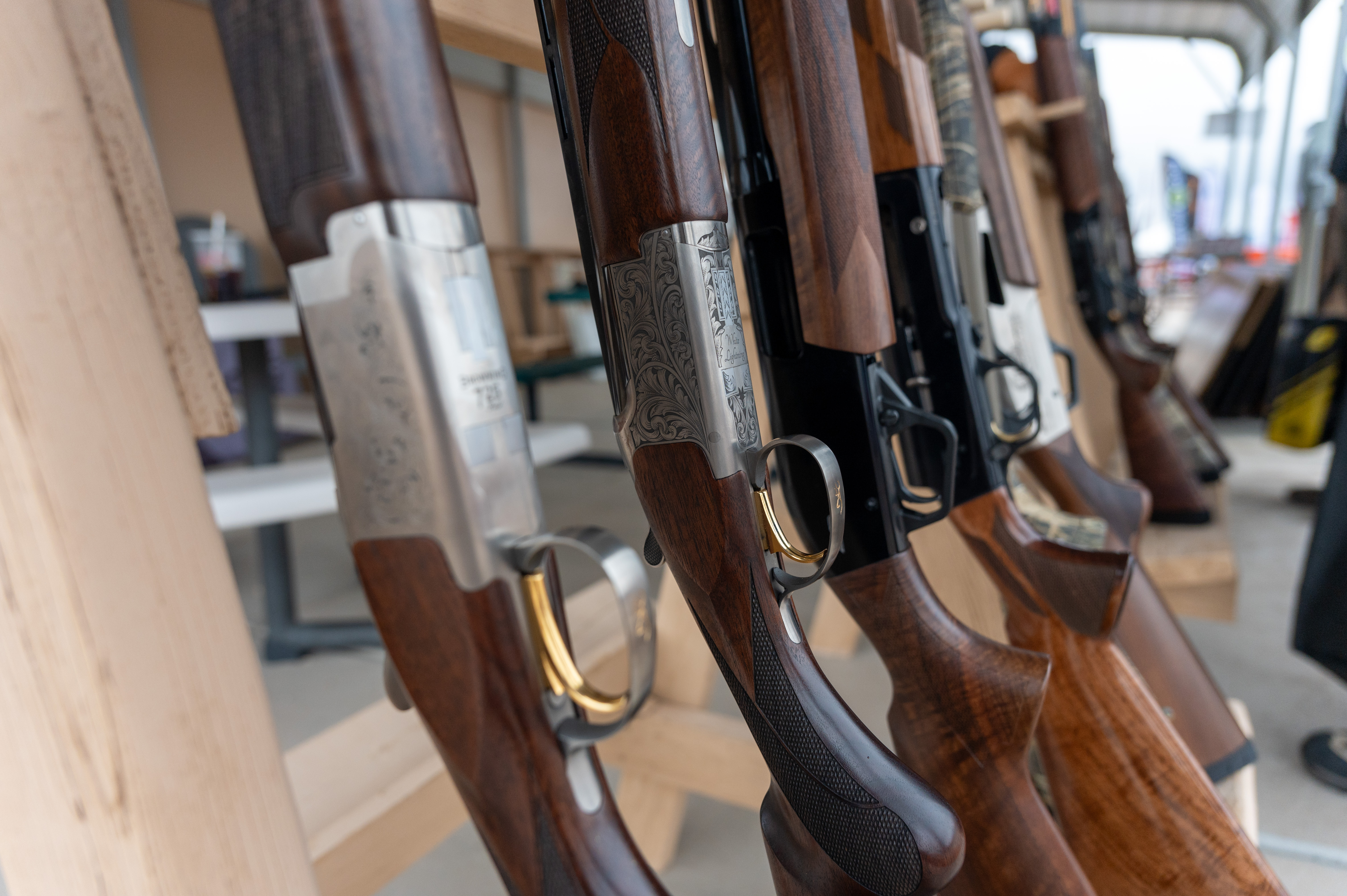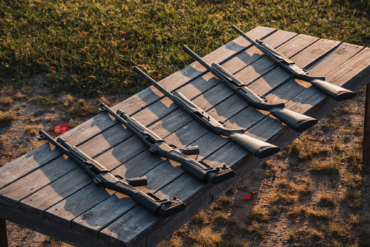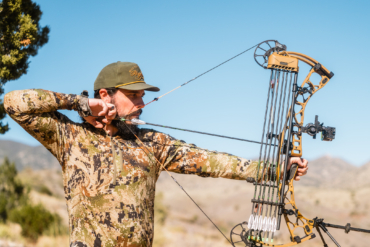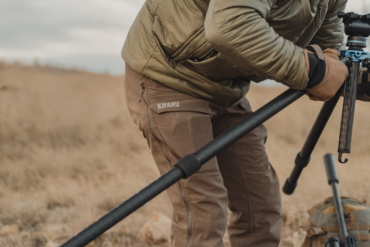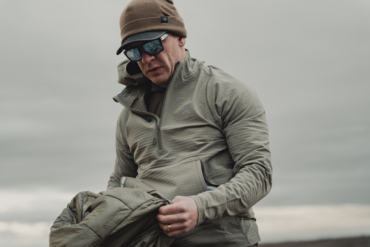Few things are more exciting than the approach of spring turkey hunting. For many hunters, it marks the end of a long winter and a much-needed return to the field. Often, spring turkey is one of the first hunts for youth hunters and one of the most accessible hunts for aging sportsmen.
And it’s fun. Toms are the most active in the spring, gobbling, strutting, and trying to chase down mates for the year.
Though spring turkey hunting is a favorite of most, all this gear works equally great for fall turkey season. Much of it is crossover gear that will work double-time for other hunts.
If we’re being honest, you don’t need much to bring home a bird for your freezer. People have been doing it for generations in nothing but jeans and a flannel while toting an old 12-gauge. This stuff will just help up the odds of putting fowl on the dinner table.
In short: With the increased availability of modern turkey hunting gear, we wanted to give you our take on items that will help you be successful while hunting wild turkeys.
What You Need to Go Turkey Hunting
Turkey Hunting Apparel That Gives You an Edge
Clothing
The great camo versus solids debate often stops at turkey hunting. Turkeys have unbelievable eyesight. And though you can certainly fill your tag without wearing camouflage, many seasoned turkey hunters will recommend it from head to toe.
Camo can be as simple as a basic pattern that best fits your local surroundings to brands that incorporate texture into their camo patterns.

An example of textured outfits for turkeys includes First Lite’s Phantom Leafy Suit Top ($90). The nice thing about this type of camo is that it can easily go over clothes you already own.
But you can also kill two turkeys with one stone here. Purchase something like the Scheels Outfitters Antler River Jacket ($140-145) and matching pants ($130), and now you have a techy and affordable outfit that can carry you into big game season as well.
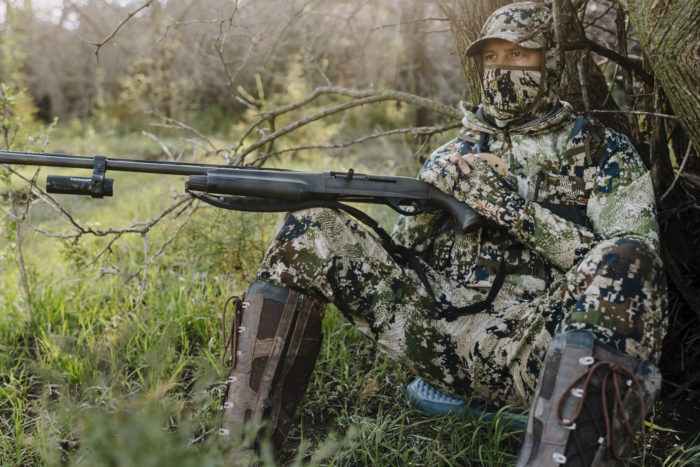
And if you’re looking to level up for turkey season, the Equinox Turkey Collection from Sitka has been getting big acclaim from hunters chasing gobbles.
Boots
Your footwear is paramount to your success. No one wants to hunt in wet, blistering conditions. If your feet give out on you, regardless of the hunt, your hunt comes to an end.

Depending on where you’re hunting, a tall rubber boot might be your best option. As long as you have a comfortable rubber boot at home that has some support and won’t blister your feet, it should suffice for most conditions. If not, the LaCrosse Alpha Agility 17″ Boot or something similar is a great option.

But if you’re hunting mountain turkeys on public land in the Rocky Mountains, a boot designed for hiking is likely a good bet. The Irish Setter Vaprtrek 8″ Boot combines the durability of a hunting boot with the agility of a hiking boot, making it a great option for chasing birds in the mountains.
Accessories
Most turkey hunters will also recommend camo hats and balaclavas to cover your face as you hunt. There are a number of low-cost balaclavas that will get the job done and really, any camo hat that won’t draw attention to head movement will do the trick. Turkeys pick up on movement more than anything else.
If you’re on a serious budget, head down to your local thrift or army surplus store. You’re likely to find camo options at a serious deal there. Or check apps like Poshmark, Craigslist, or Facebook Marketplace for budget options.
Additional items that can help keep you comfortable in the field are decent base layers, wool socks, and gloves.
Turkey Vests & Packs

You’re going to need some kind of pack to lug in your gear, be it decoys, shells, snacks, or tick repellent. Any backpack you already have on hand is perfectly capable of the job.
If you want to go all out on a turkey vest, the ALPS OutdoorZ Grand Slam Turkey Vest is a backpack, turkey vest, and seat, all in one. It’s essentially the Cadillac of turkey vests. Add-ons like designated call pockets, an integrated game bag, and more make this the ultimate gobbler hunting pack.
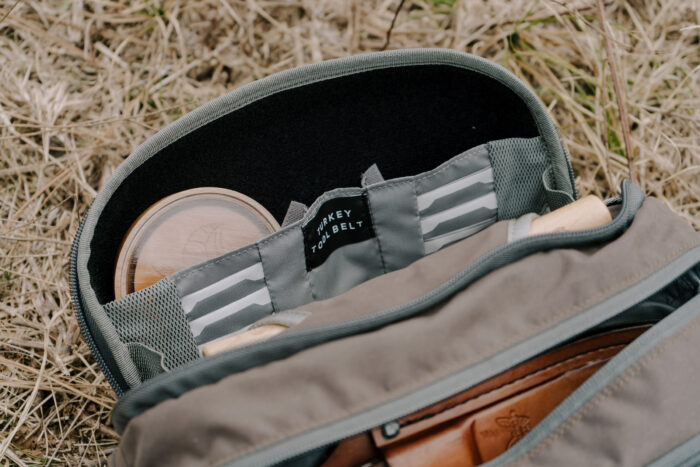
For those looking for a somehow both minimalist and maximalist turkey pack, the Sitka Turkey Tool Belt is everything you need in a bit more compact package.
Turkey Calls, Decoys, and Blinds
Turkey hunting is a close-up game. You need to call birds in and interest them in strutting for a while, all while staying concealed.
There are unlimited calls, decoys, and blinds out there, so finding what works for you will take some trial and error. These recommendations are a good place to start.
Box or Slate Calls
You can toss a few dollars at your call or be out thousands for a high-end custom slate. I’d suggest you start small, find your preferences, and hone your skills before sinking big coin into a cluck maker.
Having a box call on hand is great for both beginners and pros. It offers an easy entry into calling with a lower learning curve than a diaphragm call.
The Primos Tall Timber Gabriel Premium Box Call ($60) is a highly rated and trusted box call from arguably the most well-known company in the call business. It has double thumbholes so you can cluck and cut with ease.
Using a slate call is also simple to learn and typically much more affordable than a good box call. The Hunters Specialties Sweet Suzy Snood Slate Call — despite its long name — clocks in under $15 and is a highly rated option for turkey hunters of all experience levels.
Diaphragm Calls

With a bit of practice, a diaphragm call can mimic just about every sound a turkey makes. It offers you more control of sound and volume and has the perk of leaving your hands free. Diaphragms also tend to be less expensive, with many tapping in at under $10.
But the caveat is that it can take a bit longer to learn how to use a diaphragm call effectively. Online videos and practice sessions in the car are good options for building this skill.
One option is the Red Wasp, a three-reed call from WoodHaven. It is capable of producing sharp, crisp cuts as well as raspy yelps that emulate an old, haggard hen. This diaphragm call also has the ability to make realistic purrs and clucks. This is perfect for use on those early spring mornings.
Decoys
Because turkey hunting tends to be such a close-up, short-range style of hunting, decoys can increase your odds of success. They give a territorial tom a target to focus on, bringing it directly into the area you want it, keeping it there longer, and distracting it from noticing you.
You don’t need a decoy to turkey hunt — I have decoys and they’ve never been out of the bag. But there’s no doubt they can aid the effort.

The Primos Gobstopper Turkey Decoy Combo gives you two decoys that are crushable and easy to tote out into any condition. These decoys are efficient at eliciting a jealousy response from toms by including both a hen and a competition decoy.
This set is hollow, lightweight, and includes ground stakes and a mesh carrying bag, making it a simple addition to your spring turkey hunting gear.

If you only plan on carrying one decoy out, this is a good one. The Avian-X LCD Tom Turkey Decoy mimics a new male and appears to challenge the dominance of nearby toms.
This setup is 15% smaller than a live bird, making it an approachable target for dominant males. Built with dura-rubber, this turkey decoy is collapsible, lightweight, and easily transportable.
To Use a Blind or Not
You don’t necessarily need a blind for turkey hunting. Many turkeys have been tagged by simply leaning against a tree. If you don’t have to set up a blind, don’t.
However, depending on your hunting location and environment, blinds can certainly help. Perhaps you’re on private land with little cover and need a way to stay concealed.
For whatever reason you’re in the market for a blind setup to bring home a tom, there are vastly different styles of blinds out there. Here are a few options.

The BOG HayMaker Ground Blind is perfect for the edge of open fields where turkeys are known to congregate. They blend into agricultural settings, offering you the ability to stay concealed even in an area with little cover.
This setup is great for a semi-permanent location, as it is a bit heavy, but if you have the chunk of land to put this on, it is tough to beat. In terms of durability, mine took a 200-yard tumble, end-over-end, in a wicked windstorm and came out unscathed.

The Ameristep Care Taker Mossy Oak Break-Up Ground Blind is budget-conscious yet still has all the features needed to get the job done. It is lightweight and quick to set up, making it a terrific choice for packing in and out.
The ShadowGuard interior coating keeps you hidden by eliminating shadows and silhouettes. This blind is simple to set up, easy to move, and accommodates two hunters comfortably.
Weapons and Ammo to Put a Turkey on the Table
Regardless of what you’re wearing, where you’re hiding, or what you’re using to call them in, you need to get the job done. That requires the right tool for the job.
Different states have different laws on what you can and cannot hunt turkeys with, so it’s essential to check your local regulations before deciding on your weapon and ammunition.
That said, the two most popular tools for taking turkeys are shotguns and bows. Because both can be used in multiple types of hunting, you’ll want to ensure that whatever you’re using is set up for the right ammunition or broadheads for turkeys.
Shotguns
Most turkey hunters will opt for a 12-gauge shotgun in the field, but a smaller gauge, like a 16 or 20, can work just fine. You don’t need anything particularly fancy. There is a heap of new shotguns that we tested at SHOT Show this year, and most of them will fit the bill.
These days, most shotguns come with a variety of removable chokes. And turkey chokes are often sold separately if your gun doesn’t already have one.
Turkey chokes tighten the shot pattern for a greater chance of lethality with a big, singular, typically grounded bird. This differs from more spread-out patterns that might be better for smaller birds in flight, like quail.

As far as shotguns themselves go, specific turkey guns are available. The Mossberg 940 Pro Turkey ($1,120) boasts a lot of features that turkey hunters love. This includes mounts for a sight, a semiautomatic auto-loading platform, and oversized accessories to accommodate gloves.

For those smaller-statured hunters looking to go with a solid 20-gauge, the Browning A5 has been one of my favorite guns in hand.
Turkey Loads
There are several shell options suitable for turkey on the market and for the most part, they’ll all get the job done. You’ve got a lot of options and once you decide on what your shot material will be, it really comes down to what your shotgun setup and choke patterns are best with.

If you’ve taken the ever-growing stance of hunting lead-free, Federal Premium Ammunition delivers a phenomenal shell with its Heavyweight Turkey loads. The tungsten-alloy material has a density of 18 gm/cc, which is 22% higher than standard tungsten and 56% higher than lead. As a result, you’re afforded the utmost energy and the highest speeds at extreme ranges.
Another option is Winchester’s Long Beard XR. It has easily become one of the top turkey loads industry-wide.
These shells provide tighter patterns and longer shot range than any conventional turkey load and twice the pellets in a 10-inch circle out to 60 yards. These shells offer the same knockdown power as heavier-than-lead loads at a fraction of the cost. If you’re not sure about lead-free ammo yet, give this a read.
For the Archery Turkey Hunter
Shotguns have long been the preferred method for hunting turkeys, but bowhunting turkeys is also really popular.

Choosing the right broadhead for hunting turkeys is a big deal. If you are a bowhunter who chooses to take neck or headshots, the Magnus Bullhead Broadheads are designed for precisely that purpose. The extended blades make quick, clean kills.

If you’d prefer to bow hunt with a broadhead designed for taking vital shots, the G5 Deadmeat Expandable Broadhead is a favorite among turkey hunters. It’s also suitable for a wide range of hunting applications. That means you can use continue shooting the same broadhead come big game season if you so choose.
Tick Repellent
Before we send you off, please note that turkeys and ticks tend to coexist in great numbers. If you can track down turkeys, ticks are likely present.
And with tickborne illnesses like Lyme disease or Rocky Mountain spotted fever on the rise, it’s imperative that you both repel and stay aware of the tick situations where you are. Insect shield clothing is growing in popularity, and it helps. For a field-specific insect shield, it doesn’t get much better than a Sitka Equinox Kit.
But you can treat your own clothing with permethrin before you go out. A great option for this is Sawyer Permethrin Clothing and Fabric Insect Repellent Trigger Spray ($16).
A few other options that work really well are Ben’s Insect Repellent Wipes ($6) or Ben’s Tick Repellent Eco Spray ($10).
Final Thoughts
As long as you’re dressed for the conditions, understand your local hunting regulations for spring and fall, and have the right weapon for the hunt, you’ll be set to make some memories in the turkey woods. Making investments in gear is really about increasing your comfort and enjoyment of the experience.
To be totally honest, I think most of my turkey hunts have been in a pair of canvas pants, a sweatshirt, and a rusty ol’ shotgun. Don’t overthink it.
In addition to gear, there’s a lot of available knowledge out there. The National Wild Turkey Federation offers incredible educational resources for hunters, both novice and experienced. The NWTF also provides ample opportunity to get actively engaged in wild turkey conservation. If you’d like to get involved or want to learn more about turkey hunting, check out this organization. They do solid work.
